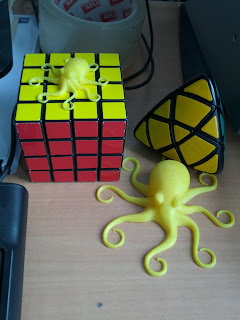Emily Willingham's Phallacy: Life Lessons from the Animal Penis is not what I expected. Based on the cover art and the subtitle, it seemed packaged as a popular science book, so I thought it would be a little biology, some interesting research anecdotes maybe, and (of course) the mandatory discussion of bedbugs and slugs ("traumatic insemination" is an extremely clickbait-y phrase).
The book did include those things, but they were side notes --- its true focus was humans, and particularly the way that we (esp. in the west) have structured society in general and scientific research in particular to ignore things that are female-affiliated, even when that is an obvious detriment to scientific knowledge and research advancement. Plus there was an always-uncomfortable, but straightforward and unforgiving, broad consideration of toxic masculinity.
I think in retrospect that it's mostly "life lessons" and only sort of tangentially about "the animal penis", especially since the book itself contains so many descriptions of ways that various animals transfer gametes that are not a penis. The tone overall was straightforward but wry and unquestionably a woman's voice: it unflinchingly and repeatedly drew parallels to the animal kingdom and pointed out how hollow and stupid and full of preconceived notions those parallels were. It was sprinkled with absolutely fantastic footnotes and asides. Willingham has a wonderful authorial tone and a gift for introducing neologisms and puns, casually adding references to popular culture and ancient history, and overall just making me wish that I was her friend so we could cackle together.
My notes overall ended up being mostly phrases or sentences that just struck me as awesome:
- simile used when discussing evolution: "You can be as fragile as a dictator's ego and still have attributes that prop you up, keep you alive in the current environment, and lead you to successful reproduction." (p 14)
- "When it comes to evolutionary studies of sex, gender, and genitalia, guess who the "winners" are?* [footnote: *Men. It's men.]" (p 15)
- "In this work, they used what they called "haptics" and every one else calls "dildos"" (p 30)
- "Lest I come across as unamused and far too earnest, I do think that genitalia and fart jokes can be hilarious." (p 46)
- "Frogs collect of an evening round the pond," (p 65)
- "Given that the human penis couldn't stab through a perfectly ripe avocado," (p 77)
- "The genre of "arthropod (and invertebrate) sex films" is small but mighty." (p 77)
- "This is a very fighty kind of bird, considering that they all apparently agree to go condo together." (p 84)
- "Who hasn't needed, at some point, to reach a neighbor with a lengthy protrusible organ, even if it was just spraying them with a water hose? If you're a barnacle, ..." (p 86)
- "[footnote: *The noise that they make is called "orgling."]" (p 106)
- p 132 she discusses her previous teaching and describes herself as showing slides and "intoning" and then says "I was obviously electric in the classroom."
- some great neologisms like "intromittens" (used frequently) and "tuatararium" (a terrarium for tuatara, p 216) which often is accompanied e.g. by "[footnote: *Yes, I made this word up.]"
- on p 288 I was caught off-guard by the phrase "squad goals" used w.r.t. mites
- "got his Twitter account... suspended for violating Twitter rules, which we all know is almost impossible to do if you're a white male." (p 243)
- "Lest I attract unnecessary derision (only necessary derision, please), no, I do not really think that..." (p 257)
- "This particular, not especially long (in words, but oh, the psychic pain lingers) paper uses the word "penis" more than a hundred times and the word "phallus" sixty times." (p 268)

















